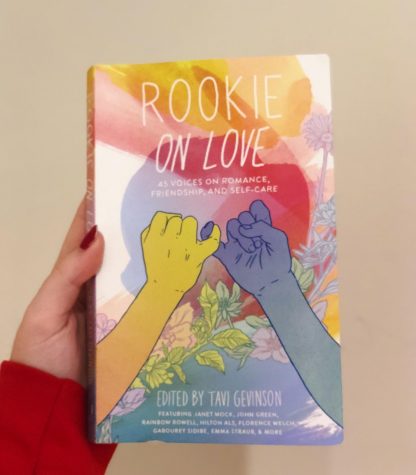Hunger Games: More Than Fiction?

May 25, 2012
Suzanne Collins’ Hunger Games trilogy, topped the bestseller lists for two years, making it a global success. The suspenseful novels captivated readers of all ages and eventually became a multimillion-dollar motion picture.
The themes of violence and reality television seen in “The Hunger Games” represent an extreme and highly exaggerated version of our society. Collins’ novels may be more than an entertaining trilogy; they may also serve as a cautionary tale.
Some don’t realize how much “The Hunger Games” reflects our society. Reality stars, for example, intrigue the masses with their idiosyncrasies or strange behavior. In the books, the games are a television program where players are forced to fight to the death. This extremely dangerous and morbid take on reality television may be Collins inflating the exploitation seen on some reality television shows.
Violent video games and sports are billion dollar recreational habits of society. Video games, like “Call of Duty,” have massive fan bases, that experience simulated war zones on a daily basis. Avid gamers can kill hundreds in just one game. However, in both video games and sports, no real people die, like in “The Hunger Games.”
In Collins’ novel “The Hunger Games,” twenty-four kids immersed in a dysfunctional and war-torn society are heralded as celebrities before they fight. The result is a final victor whose greatest prize is escaping with his/her life. Collins’ deadly games display the outcomes of a society placing too much value in the exploitation of reality television characters and violence.
The government of Panem, know as the Capitol, supports and even enjoys the Hunger Games, causing both the reader and the characters in the book to hate the Capitol. If our society supports violence in video games or the exploitation of reality stars, are we different from the hated Capitol?
Collins’ novels depict an extreme society where too much value is placed on realty television and violence. This strong message warns readers to take a step back and evaluate societal influences, to avoid becoming the odious Capitol.





![Freshman Milan Earl and sophomore Lucy Kaplan sit with their grandparents at Archer’s annual Grandparents and Special Friends Day Friday, March 15. The event took place over three 75-minute sessions. “[I hope my grandparents] gain an understanding about what I do, Kaplan said, because I know they ask a lot of questions and can sort of see what I do in school and what the experience is like to be here.](https://archeroracle.org/wp-content/uploads/2024/03/grandparents-day-option-2-1200x800.jpg)




























































Landon Lenkov • Apr 30, 2013 at 9:07 pm
I agree with Dani and Stella! Or society is very much like the hunger games. Maybe Susan Collins wrote it thinking about the Usa today?
Danielle McMillion • Dec 17, 2012 at 3:59 pm
I agree with Stella. Our society can become the hunger Games. District 12 was poor and we DO have poor areas. We also have areas that get a lot of attention from the government and whom the government favors like districts 1 and 2.
Koko • Dec 17, 2012 at 3:59 pm
I never realized how ‘real’ the hungers games was. I know to be more aware now!
Stella Smyth • Dec 14, 2012 at 10:41 pm
What if our society becomes the capital? I wonder how the world would be like if the USA became more like the Hunger Games.
bwogensen • Nov 16, 2012 at 8:34 pm
This article made me think about various historical versions of the same system/dynamic — the “media” and excitement around Roman gladiators, for instance.